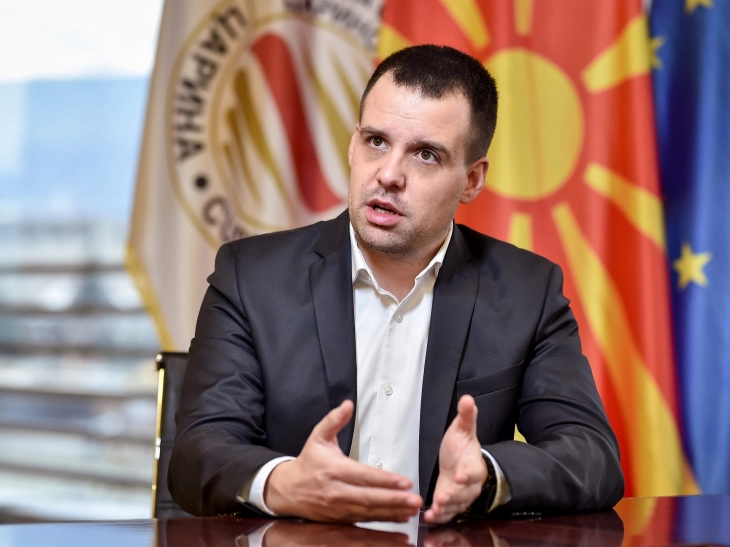Bogoev: Zero tolerance towards corruption and organized crime
- According to Stefan Bogoev, the Customs Administration director, one of the main priorities for EU accession is zero tolerance towards corruption and organized crime.

Skopje, 3 December 2023 (MIA) - According to Stefan Bogoev, the Customs Administration director, one of the main priorities for EU accession is zero tolerance towards corruption and organized crime.
To achieve these goals, Bogoev noted that several projects are being implemented in cooperation with international institutions.
“Under the work plan agreed upon with the US Department of the Treasury, concrete activities are being pursued to foster greater and more secure revenue generation for the budget, while also tackling the issues of the informal economy and corruption. Moreover, the implementation of a new risk analysis system and data repository, supported by a grant from the Republic of Korea, will improve the identification of declarations at a high risk of inaccurately stating the value of goods. A smart camera system with artificial intelligence software will be implemented at the border crossings to process data for license plate recognition, and body cameras will also be installed. These projects, along with strengthened controls implemented within the newly formed Sector for Special Investigative Measures, will suppress organized crime and corruption,” stated Bogoev in an interview with ‘24 Info.’
He informed that within the framework of the project with expert assistance from the US Department of the Treasury, efforts have been made in the past period to strengthen institutional capacities for conducting effective controls and managing risks in customs operations.
“These are key areas that will enable the elimination of the informal economy and corruption, identified as top priorities by the Customs Administration, leading to increased revenues in the budget. When referring to experts from the US Department of the Treasury, it involves experts from the US Customs Service, tax experts, and professionals in the field of cyber security, all with more than 30 years of experience. Through the sharing of experiences and practices, we are working together to identify weak links. Following this, concrete measures and activities will be undertaken to overcome them and enhance the effectiveness of Customs,” Bogoev noted.
In terms of combating organized crime and smuggling, Bogoev highlighted the great significance of the new risk analysis system and data repository, set to be implemented with the grant from the Republic of Korea totaling US$4.8 million.
“To understand the significance of this system for the development of the Customs Administration, it should be noted that the five customs offices within the Customs Administration process over one million import, export, and transit declarations annually. These data are monitored by customs offices, but they may also be subject to post-control within the Department for Trade Companies Control in the Control and Investigations Sector. The goal is to improve the identification of declarations at a high risk of inaccurately stating the value of goods,” he said.
In the interview, Bogoev also discusses the activities of the Customs Administration within the Growth Plan for the Western Balkans, the measures taken to enhance the Customs Administration as an effective service for the Macedonian economy, the Customs Union, and the activities undertaken in the process of accession to the EU. Additionally, he talks about policies related to cross-border e-commerce, as reported by the Customs Administration.







